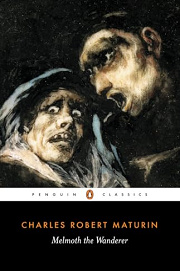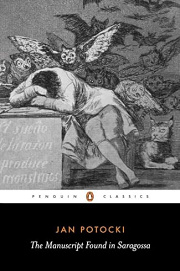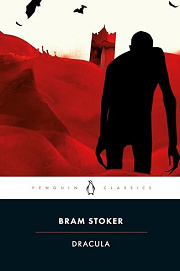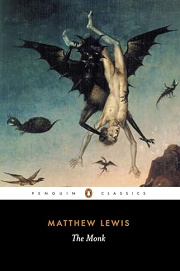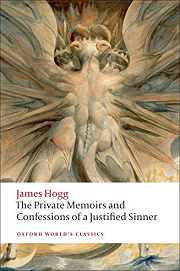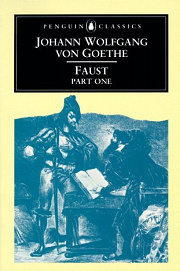Share your thoughts in a quick Shelf Talk!
Melmoth the Wanderer by Charles Maturin
A mysterious wanderer, a whispered bargain, and a trail of souls tempted at their darkest hour—this is the haunting promise of Melmoth the Wanderer. A labyrinth of gothic tales coils around a figure you won’t soon forget, drawing you into a world where desire and damnation walk hand in hand.
Have you read this book? Share what you liked (or didn’t), and we’ll use your answers to recommend your next favorite read!
Love Melmoth the Wanderer but not sure what to read next?
These picks are popular with readers who enjoyed this book. Complete a quick Shelf Talk to get recommendations made just for you! Warning: possible spoilers for Melmoth the Wanderer below.
In Melmoth the Wanderer, did you enjoy ...
... labyrinthine, nested tales where confessions and uncanny episodes unfold inside a frame story?
The Manuscript Found in Saragossa by Jan Potocki
If you loved how Melmoth the Wanderer spirals from John Melmoth’s discovery of his uncle’s papers into Stanton’s asylum horrors, Alonzo Monçada’s Inquisition ordeal, and Isidora’s island romance—all braided through embedded testimonies—Potocki’s novel is a feast. Its captain narrator is drawn into dueling cabalists, ghosts, and secret societies, each story birthing another, mirroring the way Melmoth’s framed narratives widen the abyss beneath every confession.
... a mosaic of letters, diaries, and documents that assemble a creeping supernatural history?
Dracula by Bram Stoker
Maturin’s tale leans on discovered manuscripts and testimony—John Melmoth’s inherited papers, Stanton’s account, and Monçada’s written ordeal—to pull you into the terror. Dracula uses journals (Jonathan Harker’s, Mina’s), phonograph diaries (Dr. Seward’s), and news clippings to build the Count’s menace piece by piece. If the archival texture of Melmoth’s found writings hooked you, you’ll savor how Stoker’s dossiers make every revelation feel unearthed rather than told.
... a charismatic tempter’s path to damnation within the pressures of a devout society?
The Monk by Matthew Lewis
Drawn to Melmoth’s predatory temptations—his offers to Stanton in the madhouse, to Alonzo under torture, and to Isidora on her secluded isle—then you’ll be riveted by Ambrosio’s fall in The Monk. As Melmoth prowls cloisters and prisons to snare souls, Ambrosio is seduced by the demon-haunted Matilda toward murder, rape, and infernal bargaining, all under the shadow of the Inquisition. It’s the same hypnotic descent from sanctity to corruption that fueled Maturin’s darkest set pieces.
... diabolical visitations entwined with obsessive theology and the terror of predestination?
The Private Memoirs and Confessions of a Justified Sinner by James Hogg
If Melmoth’s damnation-haunted theology—hellfire debates, the crushing weight of conscience, and the threat of eternal loss stalking Monçada and Isidora—was your draw, Hogg’s split narrative will grip you. Robert Wringhim’s encounters with the satanic Gil-Martin echo Melmoth’s tempter: whispered pacts, warped piety, and moral terror wrapped in religious discourse. The editorial frame versus Robert’s own confession mirrors Maturin’s competing testimonies about sin and salvation.
... a soul-bargain for knowledge that probes temptation, despair, and the price of desire?
Faust: Part One by Johann Wolfgang von Goethe
Melmoth’s legend turns on a dreadful pact and his roaming quest to offload damnation—etched into Stanton’s madness and Monçada’s captivity. In Faust: Part One, the scholar’s bargain with Mephistopheles unpacks the same magnetic questions: what knowledge or escape is worth your soul, and who suffers for your salvation? If you were compelled by Melmoth’s negotiations over eternity, Faust’s seduction, ecstasy, and ruin will feel like the philosophical core laid bare.
Unlock your personalized book recommendations! Just take a quick Shelf Talk for Melmoth the Wanderer by Charles Maturin. It’s only a few questions and takes less than a minute.
